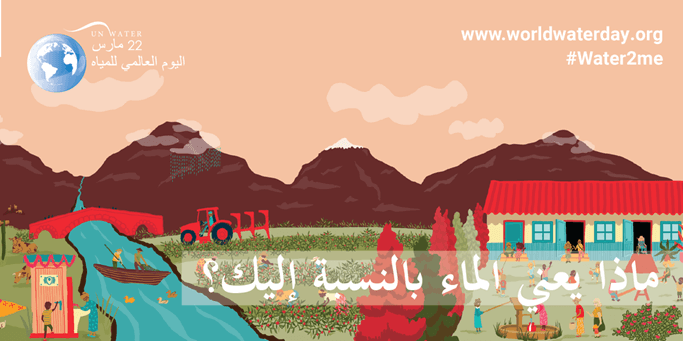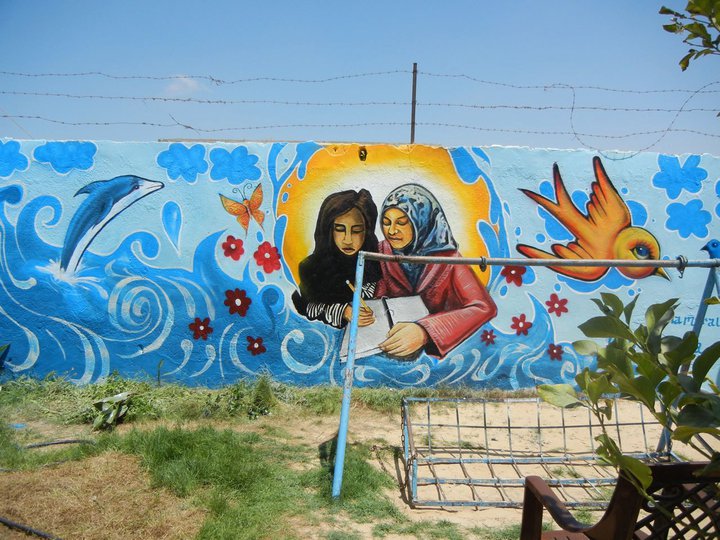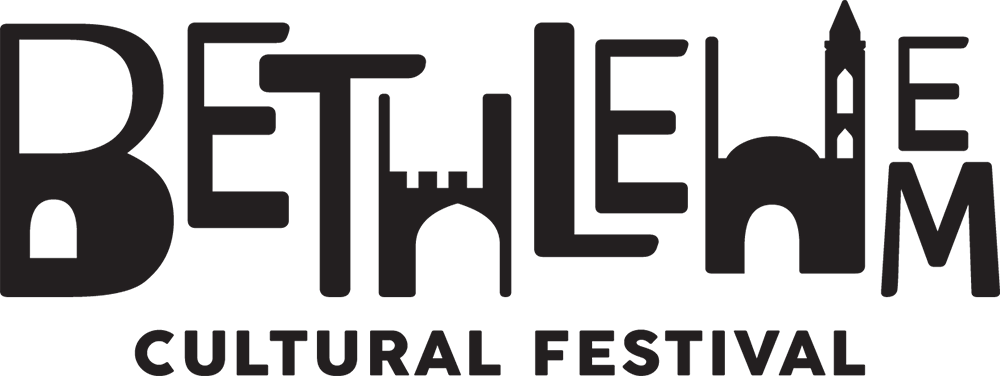World Water Day 2021
Posted on 22nd March 2021

Ahead of its main programme of events in December, the second edition of the Bethlehem Cultural Festival wishes to honour throughout 2021 a series of International Days and World Days, with artistic contributions drawn from the rich and diverse Palestinian cultural scene.
We begin by celebrating World Water Day, on 22 March, with a variety of cultural figures including poets Mahmoud Darwish and Taha Mohammed Ali, artist Benji Boyadgian and musician Nizar Rohana.
On this day the Bethlehem Cultural Festival remembers the limited supplies of water facing many in this region – a resource which many take for granted in other parts of the world. Palestinian artists, poets and writers have consequently often drawn reference to water in their works.
POETRY: From “Twigs” by Taha Mohammed Ali
“And so it has taken me all of sixty years to understand that water is the finest drink, and bread the most delicious food. and that art is worthless unless it plants a measure of splendor in people’s hearts.”
Read the full poem here
MUSIC: “Furat” (Euphrates) by Nizar Rohana
VISUAL ARTS: “Clogged” by Benji Boyadgian
Link to website here
VISUAL ARTS: Water murals of Gaza

View more photos here
POETRY: “Who am I without exile” by Mahmoud Darwish
Who Am I, Without Exile?
Stranger on the bank, like the river . . . tied up to your
name by water. Nothing will bring me back from my free
distance to my palm tree: not peace, nor war. Nothing
will inscribe me in the Book of Testaments. Nothing,
nothing glints off the shore of ebb and flow, between
the Tigris and the Nile. Nothing gets me off the chariots of Pharaoh. Nothing
carries me for a while, or makes me carry an idea: not
promises, nor nostalgia. What am I to do, then? What
am I to do without exile, without a long night
staring at the water?
Tied up
to your name
by water . . .
Nothing takes me away from the butterfly of my dreams
back into my present: not earth, nor fire. What
am I to do, then, without the roses of Samarkand? What
am I to do in a square that burnishes the chanters with
moon-shaped stones? Lighter we both have
become, like our homes in the distant winds. We have
both become friends with the clouds’
strange creatures; outside the reach of the gravity
of the Land of Identity. What are we to do, then . . . What
are we to do without exile, without a long night
staring at the water?
Tied up
to your name
by water . . .
Nothing’s left of me except for you; nothing’s left of you
except for me — a stranger caressing his lover’s thigh: O
my stranger! What are we to do with what’s left for us
of the stillness, of the siesta that separates legend from legend?
Nothing will carry us: not the road, nor home.
Was this road the same from the start,
or did our dreams find a mare among the horses
of the Mongols on the hill, and trade us off?
And what are we to do, then?
What
are we to do
without
exile?
(Translated by Anton Shammas from ‘The Bed of the Stranger’, Riad El-Rayyes Books, Beirut, 1999.)


